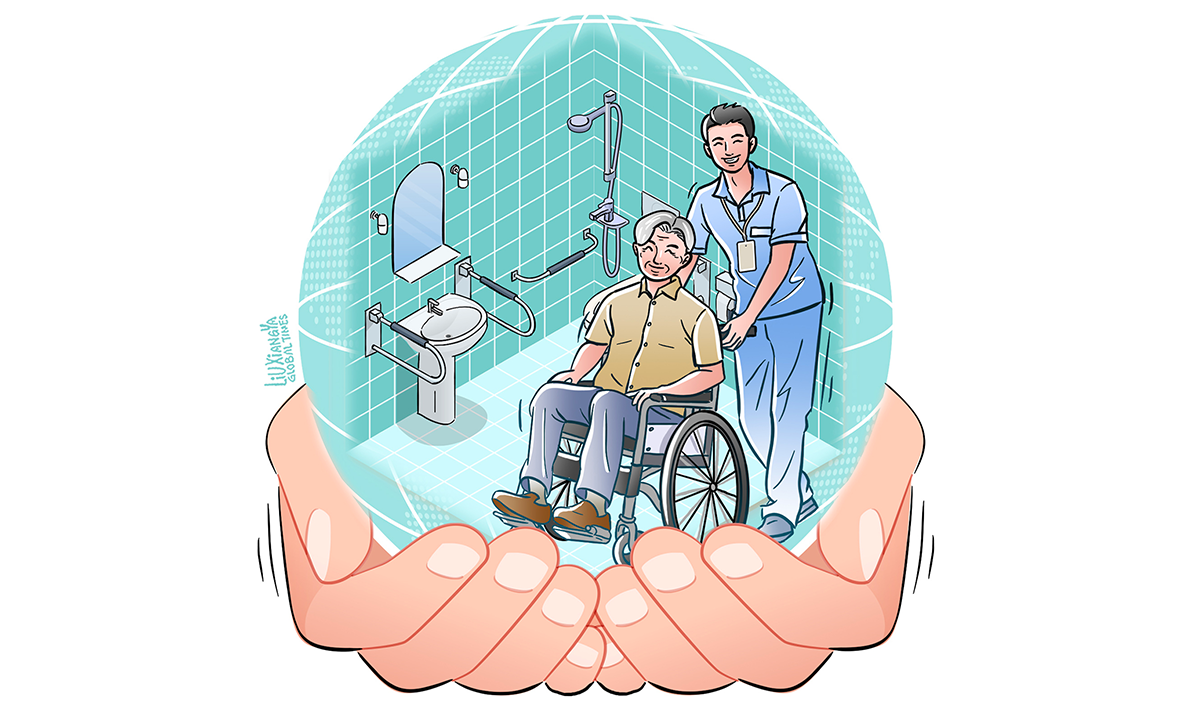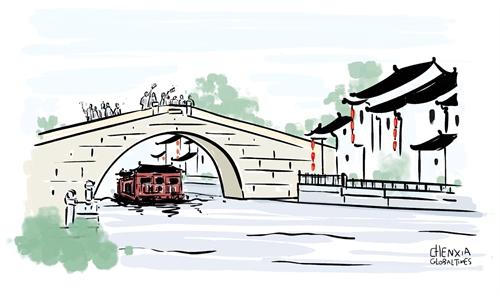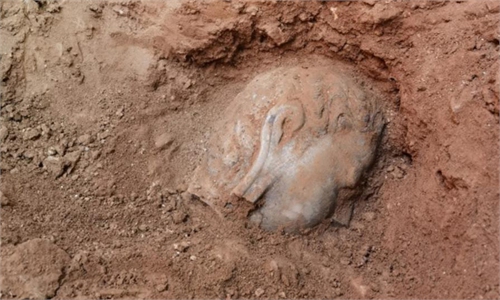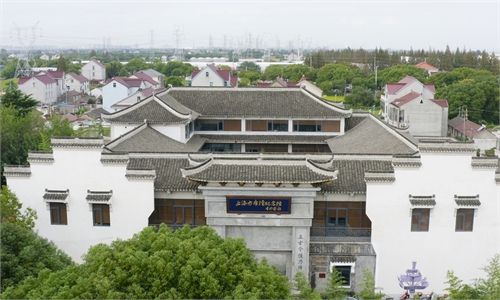ARTS / CULTURE & LEISURE
Elderly care services: exploration and solutions

Illustration: Liu Xiangya/Global Times
According to the National Bureau of Statistics, the number of people aged 60 and above in China reached more than 296 million by the end of 2023, accounting for 21.1 percent of the total national population. The National Health Commission estimates that by 2035, the number will exceed 400 million, taking up over 30 percent of the total population.
There were over 42 million elderly aged 60 and above without the ability to care for themselves in 2020, approximately 16.6 percent of the total, according to data released by the National Working Commission on Aging. By 2030, this number will reach 100 million, as predicted in "the Blue Book of China's Elderly Care Services (2012-2021)" jointly released by a research group of Tsinghua University, an elderly finance association and an insurance group. These severely dependent elderly people can barely carry out private daily activities by themselves, such as taking a bath, so who can help them keep clean and maintain their dignity?
"Bathing," a seemingly ordinary thing, remains a challenge and reflects the urgent needs that elderly people and the industry call for. In recent years, elderly care bathing assistance services, which originated in Japan, have become popular in first- and second-tier cities in China. They provide door-to-door one-stop services, including bathing, hairdressing, nail cutting, and room cleaning.
According to data by Meituan (a Chinese delivery platform), in 2021, the search volume for keywords such as "elderly bathing assistance" rose by 808.06 percent, and the order volume for this service rose by 1,450 percent year over year. Bathing assistants, an emerging profession, have attracted attention from all walks of life.
Bathing assistance seems simple but is actually complicated. For one thing, meticulous preparation is required and includes up to 50 types of bathing equipment such as bathtubs and towels, and lifting racks weighing over 90 kilograms. Standardized procedures and professional skills, such as introducing the service, physical examinations and communicating with the clients are also required. Qualified bathing assistants must receive specific training and certification before taking up their positions to ensure that clients receive professional services.
Bathing assistance services increase customers' cleanness, decrease the probability of illness, improve quality of life and uphold their dignity.
However, this new industry faces some dilemmas.
One is safety. Due to different physical conditions, the elderly people are more likely to suffer injuries. Prevention of this requires professional nursing skills and essential insurance support. The other is labor shortages. There were only a little over 500,000 elderly care workers in 2020 in China, and the demand, according to the Ministry of Civil Affairs, is estimated to be at 15 million. Moreover, information asymmetry between supply and demand, privacy issues, pricing, and lack of industry regulation hinder its growth.
To tackle these issues, the government is trying to find a solution. In March, the National Development and Reform Commission, Ministry of Civil Affairs, and National Health Commission jointly revised and issued the Implementation Plan for Actively Addressing Population Aging and Childcare Construction during the 14th Five-Year Plan (2021-25) period, which emphasizes the construction of the elderly care services system as a chain and the standardization of a home-based community elderly care services network to provide services such as disability care, cafeterias for the elderly, bathing, cleaning, and medical and mobility assistance. The "Specification for Elderly Bathing Services" was issued by the Ministry of Civil Affairs in November and implemented in December in 2023.
In addition to policy guidance and supervision, we need to strengthen talent support. To begin with, vocational education should be developed by expanding enrollment to encourage graduates from related majors such as elderly care service management and geriatric medicine to participate in the elderly care industry. Then, incentives such as financial support for talent cultivation plans, such as short-term training and further education programs, should be promoted. Moreover, we must encourage industry pioneers to set an example and lead talent teams. Last but not least, talents should be provided for to increase the attractiveness of the occupation and enhance a sense of honor through subsidies systems and advancing award and excellence evaluation programs. From another perspective, this considerable talent shortage could be a way to address unemployment, which remains a significant livelihood issue.
People are stepping closer to their senior years every day. What should they do when they get old and find even eating or taking a bath difficult? In China's 2024 Government Work Report, "elderly care" was mentioned 13 times. Five of the 10 significant tasks of government work in 2024 are related to elderly care, involving areas such as finance, healthcare, and services.
Aging populations have gradually become a trend in world population development. According to World Population Prospects 2022, released in July 2022 by the United Nations (UN), the share of the global population aged 65 years or above is projected to rise from 10 percent in 2022 to 16 percent in 2050. The UN called on countries with aging populations to take steps to adapt public programs to the growing proportion of senior people, including by improving the sustainability of social security and pension systems and by establishing universal healthcare and long-term care systems.
Actively addressing the issue of aging population has become China's national strategy. We will continuously improve the elderly care services system to meet the growing needs of people for a better life, promote high-quality population development, and provide solutions for worldwide reference.
The author is a faculty member with the School of Applied Economics, Renmin University of China. life@globaltimes.com.cn



